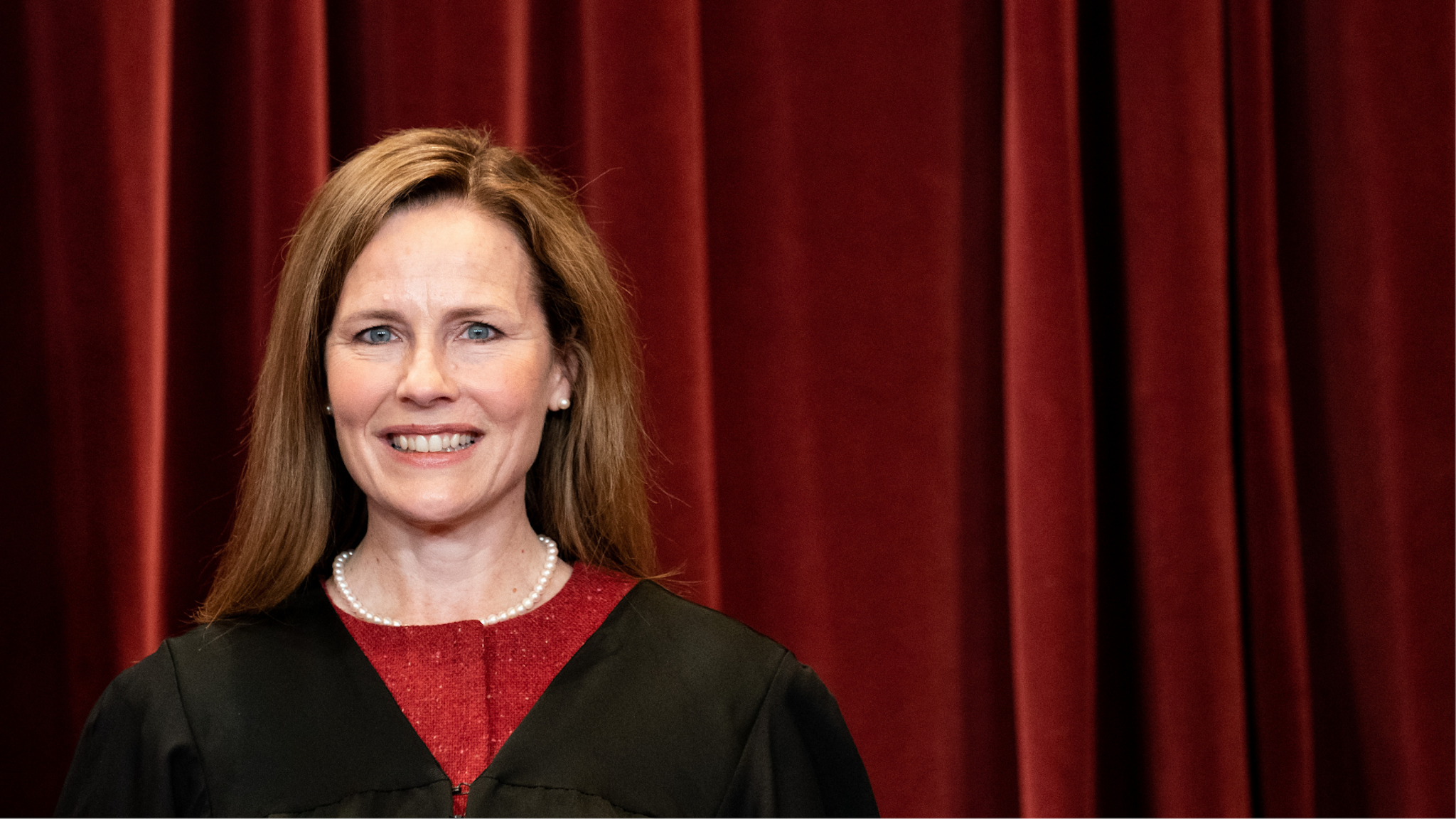On Friday, the United States Supreme Court heard oral arguments in a case challenging the Biden administration’s federal COVID-19 vaccine or test mandate for employers with more than 100 employees. During questioning, Justice Amy Coney Barrett pressed attorneys arguing in favor of President Joe Biden’s COVID-19 vaccine mandate, enforced through the federal government’s Occupational Safety and Health Administration, as to how long OSHA expected the emergency to last, thus giving the federal agency authority to enact the mandate without comment from Congress.
As SCOTUS Blog pointed out, Elizabeth Prelogar, the U.S. Solicitor General arguing on behalf of the Biden administration, maintains that OSHA is simply exercising “the power that Congress gave it under the Occupational Safety and Health Act of 1970, which directs OSHA to issue emergency rules when it determines that a rule is ‘necessary’ to protect employees from a ‘grave danger’ from exposure to ‘physically harmful’ ‘agents’/or ‘new hazards” because COVID-19 meets those comments and threatens unvaccinated workers.
As for why OSHA can enact this without comment from Congress, OSHA’s “emergency rules can go into effect immediately, without the notice-and-comment procedures normally required for agency rulemaking,” SCOTUS Blog added.
However, Barrett pressured pro-mandate attorneys as to when the emergency would end so that Congress could formally weigh in on the OSHA ruling.
“When does the emergency end? I mean, a lot of this argument has been about Congress’s failure to act. Two years from now, do we have any reason to think that COVID will be gone or that new variants might not be emerging?” Coney Barrett asked, “And when, when must OSHA actually resort to its regular authority and go through notice and comment and not simply be kind of doing it in this quick way, which doesn’t afford people, the voice in the process that there are otherwise entitled to?”
“So I think if I could respond to that in a few different ways,” Prelogar responded. “Congress defined when the emergency exists, it labeled this an emergency temporary standard, but it’s dictated by the statutory requirements so there has to be a grave danger from a physically harmful agent or a new hazard, and the measures have to be necessary to protect against that danger. And we don’t think that there’s an additional free-floating requirement about the emergency status that has to be taken into account.”
“So it could be an emergency two more years from now?” Coney Barrett asked.
“Well, I certainly take the point that the emergency can be of substantial duration,” Prelogar said. “Of course, this is not a way to, to bypass, notice and comment permanently. Congress, further specify that the agency is expected to conduct a rule-making process over six months And that’s why the agency estimated the lives saved, the hospitalizations prevented over the six-month life of the rule.”
“Sure, but I was envisioning a new rule,” Coney Barrett pushed back. “Two years from now, OSHA might two years from now adopt something that’s different from this vaccine or mask and test mandate. I’m just talking about the limits more generally on OSHA’s power under the ETS provision.”
“The limits I think are the ones written into the statute. And so if you want to project out two years from now, I think it’s entirely possible of course, that the trajectory of the pandemic will change. I certainly hope so. And in that case, OSHA, I think would have to, if it wanted to regulate again, cross that the high burden of showing a grave danger,” Prelogar said, before adding that issuing a stay on the current order would harm Americans.
Scott Keller, former Texas solicitor general arguing on behalf of the anti-mandate plaintiffs, responded to Prelogar’s argument by saying “it’s unreasonable to assume that Congress gave OSHA unprecedented power over American industry and the emergency power is also narrowly circumscribed yet here OSHA has never, before done mandated vaccines or widespread testing, much less over all industries or on an emergency basis,” he argued.
“So whether we’re talking about the agency’s failure to explain, whether we’re talking about the statutory term necessary, whether we’re talking about how this has to be tethered to the workplace, under the major questions doctrine — under any one of those theories, we are likely to succeed on the merits,” he claimed regarding why his side is constitutionally correct.
“And finally, when it comes to the public interest, as this court just recognized a few months ago,” he added, it is undisputable that the public has a strong interest in combating the spread of the COVID-19 Delta variant but our system does not permit agencies to act unlawfully even in pursuit of desirable ends.”
It is expected that the court may issue a stay on the mandate or rule by Monday whether or not the OSHA rule is constitutional, as requested by the anti-mandate plaintiffs.
The Daily Wire is fighting Joe Biden’s vaccine mandate in federal court. Join us in this fight by signing our petition to OSHA, telling them that you will not comply with this mandate.

